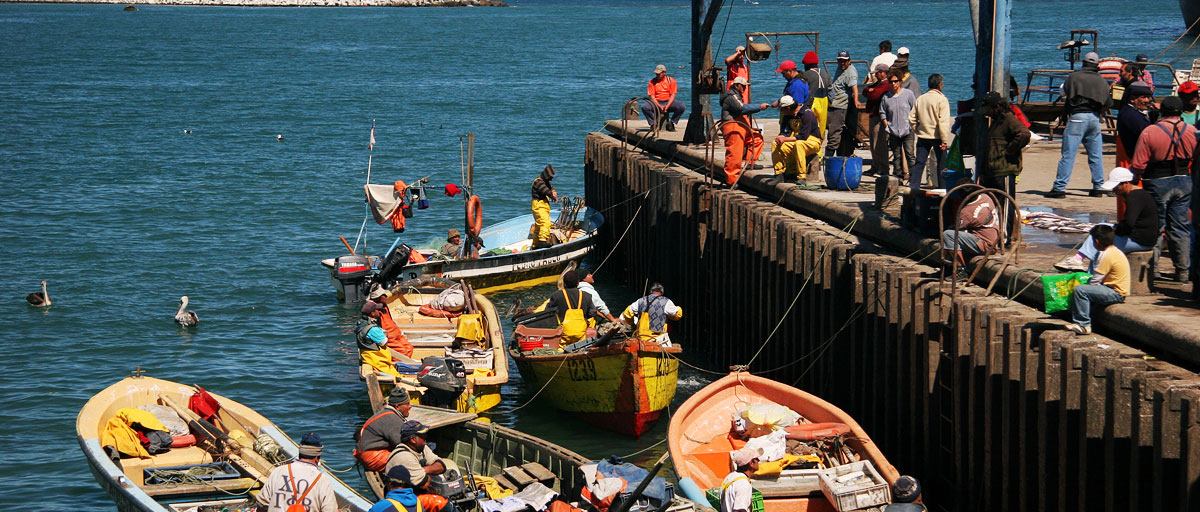
A new study on No-take marine protected areas (Nt-MPAs) in Chile shows that 'bottom-up' marine conservation initiatives are no ’silver bullet’ without trusting relationships and regular communication between stakeholders. Photo: M. Hintsa/Flickr
Marine conservation
I trust you, therefore we are
Establishment of bottom-up, no-take marine protected areas need trust, communication and support to succeed
- Common interests do not necessarily lead to common action
- Study looks at two bottom-up initiatives in Chile, Navidad and Punta de Lobos marine sanctuaries
- Level of trust, support and interaction among actors differed significantly
No-take marine protected areas (Nt-MPAs) are indispensable tools for biodiversity conservation but also extremely difficult to establish. A large proportion of these areas are not well enforced and meet resistance from fishers.
This is particularly noticeable when Nt-MPAs are implemented in a top-down manner with weak local participation.
As a consequence, researchers and NGOs have promoted a shift towards more inclusive bottom-up designed areas, hoping this will encourage people to comply and enforce Nt-MPA rules and regulations.
Maybe.
Success and failure
In an article published in Aquatic Conservation: Marine and Freshwater Ecosystems, Centre PhD student Andrés Marín have analysed the design of two bottom-up areas in Chile.
The two areas have been developed over the past eight years under relatively similar ecological, social and formal settings. Yet one initiative is enjoying success while the other has stalled.
"Bottom-up marine conservation initiatives are far from being a ’silver bullet’ and they have been established with various degrees of success”
Andrés Marín, co-author
His conclusion is that common interests do not necessarily lead to common action. You need trusting relationships combined with regular communication between local stakeholders and regional and national authorities.
Methods
Together with research colleagues in Chile, Marín studied the Navidad and Punta de Lobos marine sanctuaries. Both are located in central Chile within municipalities that depend heavily on fishing and tourism.
The Navidad sanctuary initiative started in 2005 and was formally approved as a sanctuary in 2012. The Punta de Lobos initiative, on the other hand, started off in 2006 but stalled at local and national levels in 2010.
Marín and his colleagues combined in-depth interviews with semi-structured questionnaires given to leaders or representatives of all organisations involved.
The researchers applied a "snowballing method" to make sure all relevant stakeholders had been included.
This meant interviewed stakeholders were asked to identify other stakeholder groups involved or affected by the establishment of the Nt-MPA which were surveyed until no new names were mentioned.
Strong motivation not enough
The results of their study revealed significant differences between the two Nt-MPAs. There was nothing wrong with the motivation to create a sanctuary, however the level of trust, support and interaction among actors differed significantly.
Network analyes of the Navidad sanctuary revealed a tight and well-connected network while the Punta de Lobos network was far looser and more dispersed. This also reflected the level of participation.
In Punta de Lobos, half of the stakeholders felt that the Nt-MPA idea had been imposed by other stakeholder groups. Consequently, the bottom-up process was perceived as a top-down one.
"This is an essential point to consider when NGOs and governments try to trigger bottom-up conservation processes," says Andrés Marín.
"Bottom-up marine conservation approaches are not a panacea and common interest do not necessarily lead to common action. That is why NGOs, managers and agencies aiming to promote these processes must give special consideration to the creation of good communication that in turn spur trustful relationships," Marín concludes.
citation
Oyanedel R., Marín A., Castilla J. C. and Gelcich S. (2015) Establishing marine protected areas through bottom-up processes: insights from two contrasting initiatives in Chile, Aquatic Conserv: Mar. Freshw. Ecosyst., doi: 10.1002/aqc.2546.
Andrés Marín is a PhD student at the Centre. His research interest is in the social dimension of socio-ecological systems and resilience. The research focuses on Management and Exploitation Areas for Benthic
Resources, a national co-management system for the small-scale artisanal
fishery sector in Chile that is based on territorial user rights.






